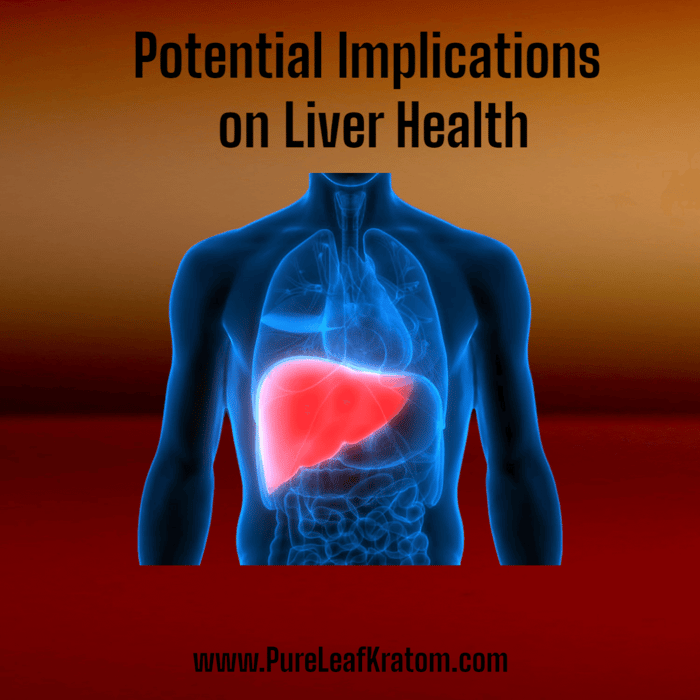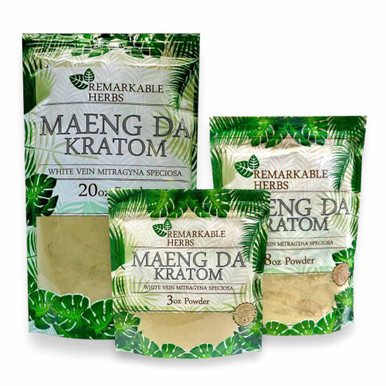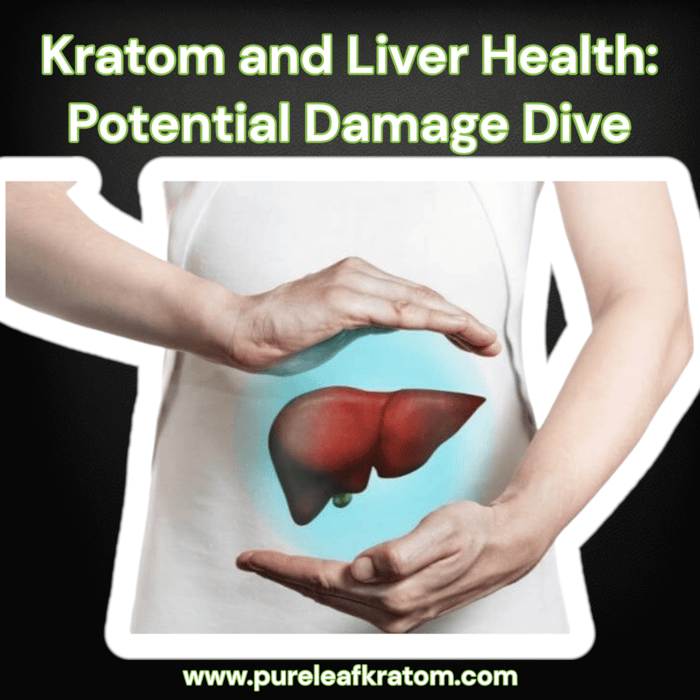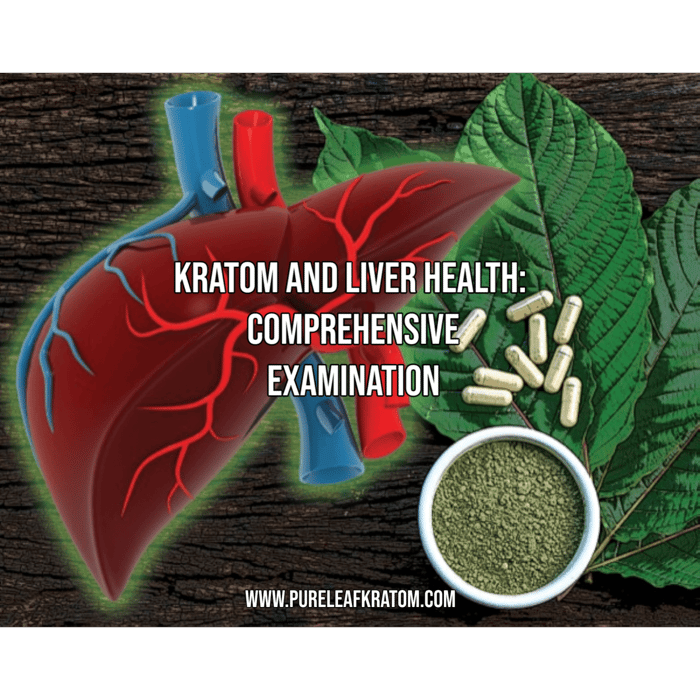
Kratom and its Potential Implications on Liver Health: A Deep Dive into Kratom-Induced Liver Damage
Entering The Enigma: Kratom and Its Implications on Liver Health
As forests seem to harbor secrets in their depths, so do natural remedies like kratom. Known for therapeutic properties, it holds a significant place in traditional medicine, specifically in Southeast Asian cultures. Yet, like all mysteries, the mystique of kratom doesn't come without warnings. Today, we delve into one of the most discussed controversies related to kratom: its potential impact on the liver, an organ central to our overall health. Explore the therapeutic aspects while being aware of potential implications on liver health.
Rising interests in the herbal supplement have drawn attention to kratom’s possible risks. With liver health being a primary concern, it has never been more pressing to understand the potential implications on Liver Health with kratom use—enter kratom and it's potential implications on liver health. Often overshadowed by its supposed benefits, growing evidence suggests a worrying link between kratom and liver health. Demystifying this relationship is both paramount for health professionals and valuable for users.
OPMS Gold Kratom Shot Liquid Extract

$8.43
OPMS Kratom Gold Liquid Extract Shots Add a shot of OPMS Kratom to your daily health routine to feel more balanced. Made from a highly...… read more
A Journey of Discovery: Understanding the Kratom-Liver Nexus
The goal of this exploration isn't to vilify kratom, nor to downplay the importance of liver health. Rather, amidst the current surge in the popularity of kratom consumption, it aims to shed light on a prevalent but poorly understood health concern. Through this journey, we will navigate the intricate waters of scientific studies, case reports, personal anecdotes, and expert opinions on kratom-induced liver damage, molding a comprehensive understanding of the potential implications on liver health.
We will unfold the mystery of kratom, its biochemical interaction with the liver, and the possible outcomes of such interaction. We will further elucidate the signs and symptoms of liver damage, its severity, and eventual medical interventions if any. Navigating through these areas will eventually lead us to a better understanding of kratom's potential implications on liver health and wellbeing.
The Task Ahead: Navigating the Kratom Conundrum
Above all, this article is a map, guiding readers through the terrain of kratom use and its potential effects on liver health. It is a promise to everything, from the most basic understanding of the anatomy and function of the liver to the complex biochemical mechanisms of kratom-induced liver damage. This journey is sure to be an enlightening experience, answering questions, and challenging the way we perceive natural therapies and overall health maintenance.
Indeed, the journey to understanding is long and challenging. But as we delve deeper into the labyrinth of kratom’s impact on liver health, we might just be able to turn questions and concerns into knowledge and action. As we embark on this expedition, remember to keep an open mind, and like all good explorers, remember to question what you learn, for that's the core of scientific enlightenment.
A Deeper Look into Kratom
Derived from the leaves of the Mitragyna speciosa tree native to Southeast Asia, kratom is an herbal remedy with an interesting mix of stimulant and sedative properties. Historically, local cultures have chewed these leaves or brewed them into teas as a remedy for fatigue, pain, and diarrhea. The herb contains alkaloids such as mitragynine and 7-hydroxymitragynine which, at low doses, provide a stimulant effect, increasing energy and focus. At higher concentrations, these same alkaloid compounds offer opioid-like effects, providing pain relief and aiding in management of opioid withdrawal.
Despite its therapeutic benefits, kratom usage can lead to adverse effects. Common side effects include nausea, vomiting, constipation, itching, sweating, dry mouth, and loss of appetite. Additionally, rare but serious complications like seizures, liver damage, withdrawal symptoms, and respiratory depression have been reported. Curiously, kratom's exact mechanisms of action and safety remain ambiguous, necessitating further research into the drug's risks and therapeutic potential.
Remarkable Herbs White Maeng Da Kratom Powder

$5.45
Remarkable Herbs White Maeng Da Kratom Powder Harvested from pristine plantations in the beautiful region of Brunei, Remarkable Herbs's White Vein Maeng Da Kratom is...… read more
Out of Stock
Chronic Kratom Use and its Link to Liver Damage
Moreover, a consistent use of kratom has been linked in some cases with the incidence of liver injury. A comprehensive literature review detected eight cases of liver injury associated with kratom use out of 404 in the Drug-Induced Liver Injury Network, with seven of these instances having a probable causal relationship with kratom. The symptoms manifested in these cases typically included jaundice, itching, abdominal pain, and fever. These symptoms were reported to occur roughly 22 days after the patients began using kratom.
Liver injury patterns in these cases varied, but elevated levels of liver enzymes and jaundice were commonly observed, indicating a disruption in liver function. Interestingly, the injury patterns seem to suggest a cholestatic or mixed liver injury, which involves disruption of bile flow (cholestasis) resulting in liver damage. Researchers have postulated that these adverse effects could be due to the hepatic metabolism of kratom compounds.
Evaluating the Severity of Kratom-Induced Liver Damage
The severity of kratom-induced liver damage can encompass a range of conditions. Liver damage is typically assessed by elevated levels of liver enzymes such as Alanine Transaminase (ALT) and Alkaline Phosphatase. Another crucial marker in this evaluation is bilirubin, whose high levels can indicate liver disease or other health complications. Chronic kratom use can result not just in isolated liver damage but also in kidney failure and bone marrow complications.
Despite these potential implications on liver health, it is worth noting that all patients recovered, albeit some required hospitalization. This suggests that such kratom-induced liver injuries can be reversed if the drug usage is halted. However, considering the potential severity of these damages and the significant health risks they pose, it is crucial that more research and regulation surrounding kratom use be undertaken for public health and safety.
Prognosis and Risks of Kratom Use
Understanding the potential implications of kratom use on liver health extends beyond diagnosing the damage. It also includes the prognosis of kratom-associated liver toxicity and the possible risks involved. This section delves into what happens after discontinuation of kratom use and discusses potential case studies and FDA database revelations pertaining to kratom and liver health.
Prognosis of Kratom-associated Liver Toxicity
Upon discontinuation of kratom, the liver damage induced by its chronic use usually starts to reverse. Patients, however, must bear in mind that this reversal is not instantaneous but instead gradual and dependent on the severity of the injury. The biological process of reversing liver damage entails relieving the liver of toxin overloads and allowing time for the organ to perform its natural detoxification and regeneration. In most cases, this self-healing ability of the liver sees patients recovering naturally following the cessation of kratom use.
Nonetheless, despite this promising prospect of liver repair, some instances may require medical intervention to expedite recovery. Corticosteroids and N-acetylcysteine are among the steps to address inflammation and oxidative stress in the liver. The precise management methods, however, remain unclear and thus necessitate further research.
Case Studies and FDA database Examination
An examination of kratom-related cases and the FDA adverse reporting system brings to light the adverse outcomes, risk factors, and frequency of liver damage associated with kratom use. The most common form of liver injury associated with kratom use tends to be cholestatic or mixed liver injury, with larger elevations in bilirubin levels. Patients typically present symptoms such as fatigue, nausea, itching, and dark urine within one to eight weeks of regular use. Jaundice, typically occurring due to the accumulation of bilirubin, is also common in these cases.
In consonance with the similar narratives provided by case studies, a recent study by the U.S. Drug-Induced Liver Injury Network identified 11 cases of liver injury attributed to kratom use over 15 years. Although no fatalities resulted from these cases, the severity of the damage necessitated hospitalization for eight of the 11 patients, with three patients developing elevated INR levels. Shutting down kratom use, however, saw ten out of the 11 patients recovering completely within six months.
The use of kratom, particularly in combination with other substances, can amplify the potential implications on liver health. Although liver damage linked to kratom use alone is a concern, the additional hepatotoxicity from other substances may overburden the liver, escalating the damage and complicating the treatment process. Therefore, the interactions between kratom and other substances should also be the subject of future research.
While most patients may recover fully once kratom is stopped, the potential implications on liver health and sometimes prolonged liver damage reinforces the need for heightened caution regarding kratom use. It is prudent for patients to thoroughly understand the implications of kratom, especially in the context of liver health, before embarking on its use.
Disclaimer
The products discussed here and any claims or suggestions made have not been evaluated by the Food and Drug Administration (FDA). This content is not intended to diagnose, treat, cure, or prevent any disease.
The information on this website is provided for general informational purposes only and should not be relied on as the sole basis for making decisions – we encourage consulting primary, qualified, more complete, or professional sources. Any reliance on the material on this site is at your own risk.
Information shared on this site may be updated at any time and may include information or data that are no longer current, accurate, or complete and is provided for your reference only. We are not obligated to update published content, and it is the reader’s responsibility to monitor any changes and to consult with primary, qualified, more complete, or professional sources.
We make no guarantees regarding the completeness, accuracy, or reliability of the information provided, nor do we warrant that any products, services, or materials offered will meet individual expectations. Use of this site and its content is at your own discretion and risk.




